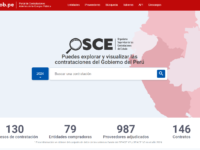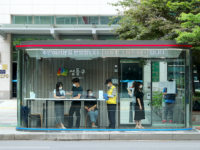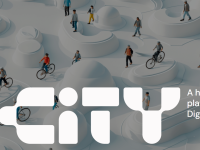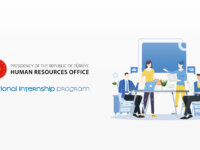The project proposes a system for extracting and analysing information from the medical records of breast cancer patients, using artificial intelligence. This would support research, personalised medicine and health decision-making, benefiting clinicians and regional authorities. This provides an automated alternative to accelerate translational research, promote personalised medicine and improve the efficiency of health services.
Innovation Tag: Social Innovation
vCity is a human-centric platform for urban digital twins, with the goal of improving life quality within the city by assisting urban planners make evidence-driven urban decisions. vCity's innovative approach combines 1) simulation by designing virtual replicas of the cities, 2) what-if scenario tools in urban planning and 3) getting the "pulse" of the city from digital platforms for citizen participation.
SignAvatar's long-term vision is to enable real-time sign language generation, opening doors to multiple applications such as TV, Social Media, Video calls, Online courses, and many applications in the public sector.
Our first product is TransportSign, a system for auto-generated service information in Sign Language for Airports and Train Stations. By transforming audible announcements and on-screen text into SL, we enable more than 460 Million Deaf individuals around the world to travel freely
Case Study
Portal de Contrataciones Abiertas de la Compra Pública -Open Procurement Contracting Portal

The Organismo Supervisor de las Contrataciones del Estado (OSCE) supervises public procurement, ensuring integrity and efficiency. Its Portal de Contrataciones Abiertas de la Compra Pública plays a crucial role, improving transparency with international standards. By implementing the Open Contracting Data Standard (OCDS), it provides detailed access, benefiting entities, suppliers, citizens and civil society.
Case Study
Everyday Safety and Convenience through Cutting-Edge Technology: Seongdong’s Smart Shelter &…

Smart shelter
Seongdong District’s smart shelter applies smart technologies to the bus stop to provide not only real-time traffic information but also 18 useful services, including public Wi-Fi and phone charging.
Smart crosswalk
Seongdong District’s smart crosswalk uses cutting-edge technologies (in-ground traffic light, pedestrian traffic light, voice guidance, etc.) to prevent accidents caused by pedestrians using smart phones while walking and protect children and seniors.
Senior citizens are often excluded from cultural experiences located inside public museums, for reasons such as physical impairments, institutionalization, or health limitations. The BeauCoup innovation creates multisensory, inclusive technologies using digital and analogue tools to make cultural heritage accessible and engaging even outside the cultural institutions. Local, state, and federal governments that manage museums are involved in the innovation process of barrier-free cultural access.
The Seoul Outdoor Library was created to meet the needs of citizens for their healing and rest in a safe space since COVID-19. As a new approach where the concept of a library space is expanded from being inside a building to outdoors, a space is created to share culture with multiple generations by offering various services for citizens in collaboration with the local community. It is an innovative model where a library is shifted to a social place in which anyone could enjoy the library.
The organization has first piloted and then fully implemented a school educational program on consumer protection, "Young Consumers. The basic rights". The program aims at a proactive approach and early building of awareness on sustainable consumption and consumer rights, include those rights' ecosystem of protection and the milieu within which they are exercised. This innovation reaches out to its target-group and capitalizes on the benefits of physical presence as well as the students' own…
The National Internship Program, coordinated by the Presidency of the Republic of Türkiye Human Resources Office, is a nationwide program designed to assist youth employability and school-to-work transition. It involves all public institutions and voluntary employers with the aim of providing internship opportunities for university students with principles of equal opportunity and merit ensured by its platform. The Program helped and encouraged candidates to engage in activities for their…
The Aao School Chalein (School Enrollment Drive) initiative in Haryana addresses student enrollment challenges through a mrico-improvement (MI) approach and collaborative action. By empowering school leaders, leveraging technology, and using creative strategies to engage various stakeholders, it encourages community participation to boost student enrollment. This approach has the potential for collaborative, scalable solutions in addressing many education challenges, at scale.



